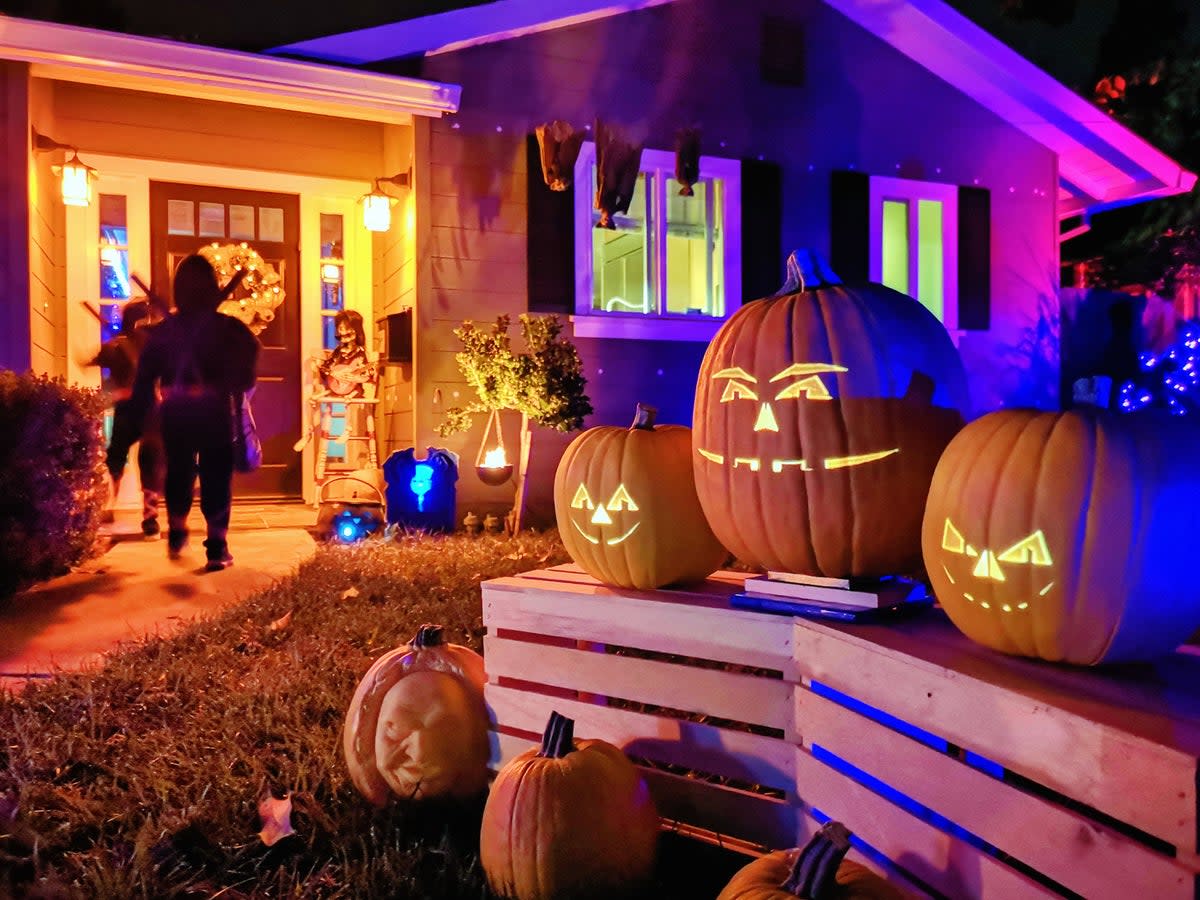Voices: The world is scary enough – do we really need Halloween? Yes, we do

The world is a scary place and life can be messy. In light of that, Halloween can seem strange. We will dress as the dead, as killers, as monsters. We will celebrate the terrible, the unthinkable, the unhinged. We will watch movies where where mad murderers stalk the night, where evil rises from the grave.
The shop shelves groan with plastic fangs dripping in painted gore, with mass-produced machetes stained in shades of bloody red, with rubber claws, black-taloned to rip out a heart.
Confected blood and gore, a gleeful embracing of death and dust and destruction. Do we really need this?
I say yes. Yes we do.
Halloween is often said to be something of an American export that has only found its proper commercial niche in the UK relatively recently. It may well be the case that America has always done Halloween with a little more gusto – in fact, during the Second World War, the authorities there exhorted children to go easy on the trick or treating, saying that valuable resources were being wasted in, for example, the tradition of soaping neighbourhood windows.
But anyone who spent a 1970s Halloween almost breaking their wrist trying to hollow out a turnip with a spoon to make a lantern, and dressing as a witch in a black bin bag, will testify that fright night has always been a thing over here.
It has just been less commercial, until recent years, and perhaps that is because we have a direct genetic link to the origins of Halloween in the pagan festival of Samhain.
Traditionally held on 31 October, Samhain marked the end of the summer, the pulling in of the harvest, the preparation for the long, dark, winter months ahead. Fires were lit, both for celebration and to ward off ghosts. Because when the days are at their shortest, the veil between our world and the places where the dead reside are at their most tattered.
Halloween is in our blood as a people. It is the long tail of our ancestry, the flapping coat-tails to which the ghosts of those who have gone before us cling.
We still believe in ghosts. A survey in 2017 by the data gathering organisation Statista showed that 39 per cent of 18 to 34-year-olds believed in ghosts and paranormal activity. It dropped a little to 35 per cent among 35 to 54-year-olds, and dropped off sharply to 26 per cent of the over 55s. But even at the lower end of the graph, that is still one in four of us who believe, in this hyper-technological world, in things science has yet to explain.
Halloween makes us open-minded. It encourages us to question what we think we know. It gives us pause to think we don’t know everything about the world, what is out there in the darkness. Is that a scary thought? Well, excellent. Because that can actually be good for you.
A scare releases oxytocin into our systems, a hormone which actually encourages bonding with other people.
So when we’re scared – when we frighten ourselves silly with a horror movie or a ghost story, or just the sight of someone jumping out from a dark corner wearing a homemade zombie costume – we’re actually bring ourselves closer to our fellow humans.
And that’s why the best horror stories have always been more about the people than the monsters. Horror movies and books aren’t just meant to be processions of awfulness, they’re designed to reflect our own world and lives back at us through a very dark mirror.
Writers mine the depths of the human soul to ask what is the thing that scares us? What is the very worst that can happen? And how can we overcome that? What is the very best that we can be?
Real-life is not wrapped up in 300 pages, or two hours, or eight episodes, with a satisfying resolution. The world isn’t as neat as that – life does not conform to dramatic sensibilities.
But perhaps the things that scare us at Halloween can help us navigate life and its messiness, encourage us to try to emerge into a new dawn with the knowledge that, yes, awful things actually can be overcome.

